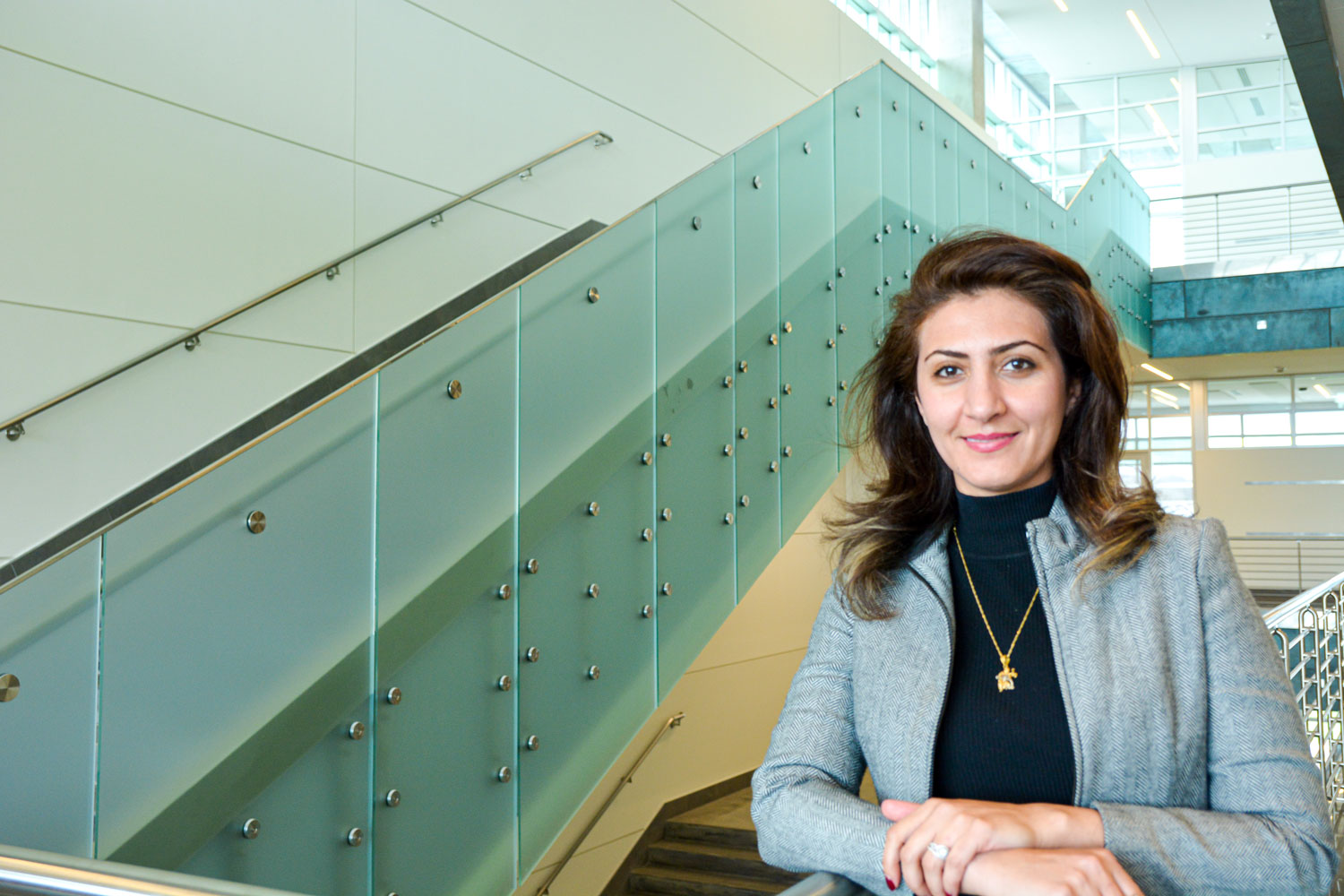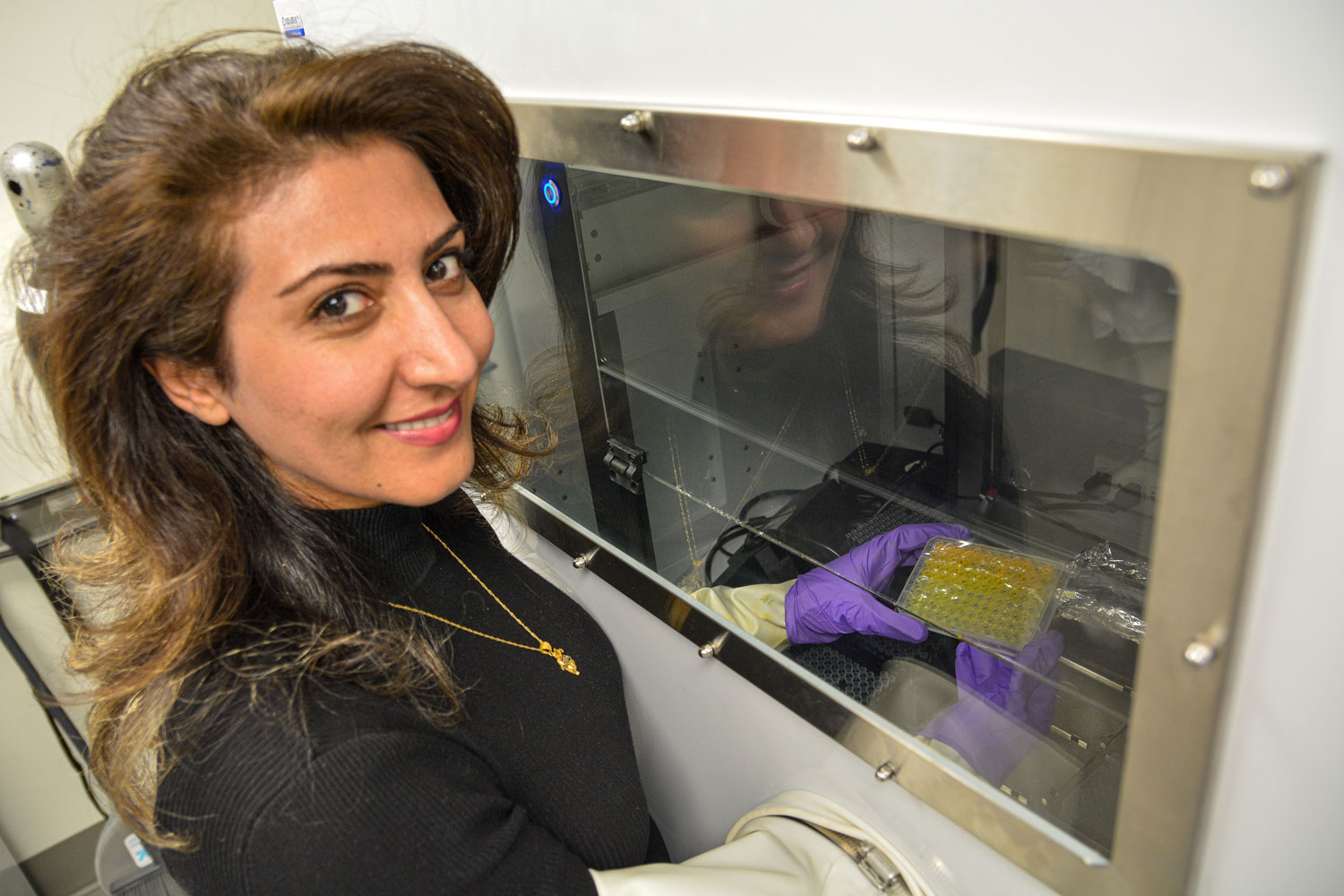By David Goddard. Photography by Yvette Gooden.
Assistant Professor of Materials Science and Engineering Mahshid Ahmadi has been selected for recognition as a Sloan Research Fellow for her work in chemistry.
She is just the fifth faculty member from UT to be so honored since the fellowship’s beginning in 1955, joining William Eaton (mathematics, 1969), John Wood (neuroscience, 1976), John Walsh (mathematics, 1982), and Karen Lloyd (ocean sciences, 2015).
The awards are given by the Alfred P. Sloan Foundation, which receives more than a thousand nominations every year for 118 fellowships.
“I am humbled to have been selected for this recognition and honored to have the research that I have done and continue to do valued in this way,” said Ahmadi. “This is a validation of the significance of the research direction I am excited to explore, and it serves to acknowledge the importance of the work that goes on in our department and the collaborative and supportive atmosphere at the University of Tennessee.”
Ahmadi is an expert in dealing with a type of materials known as perovskites that are grown from chemical solutions.
Dr. Ahmadi’s work is truly revolutionary and can have a deep impact far beyond the classroom and into the practical lives of nearly everyone on the planet.”
The goal of her research is to harness the power of automated synthesis and high-throughput characterization to accelerate discovery of new compositions and design of materials for solar cells and other electronic applications.
“Development of low-cost materials that can be easily manufactured for use in electronics and energy conversion applications is such an important field in this age of electrification that we now live in. Dr. Ahmadi’s work is truly revolutionary and can have a deep impact far beyond the classroom and into the practical lives of nearly everyone on the planet,” said Matthew Mench, dean and Wayne T. Davis Dean’s Chair of the Tickle College of Engineering. “We are proud of Dr. Ahmadi and this prestigious recognition of her work, and I look forward to seeing her important research progress. We’re so glad she is a Volunteer.”

That sentiment is echoed by Ahmadi’s department head, Chancellor’s Professor Veerle Keppens.
“During the relatively short time that I have known her, I have seen her grow into an independent young researcher, one that is making outstanding contributions in her field and serves as a role model for our students,” said Keppens. “Her research approach, using automated synthesis and scanning-probe and chemical imaging, supersedes the currently standards in the field and is highly aligned with the department’s vision of bringing data science and artificial intelligence into materials science and engineering.”
Sloan Fellowships are currently granted in seven fields: chemistry, computer science, earth system science, economics, mathematics, neuroscience, and physics.
“Today’s Sloan Research Fellows represent the scientific leaders of tomorrow,” said Adam F. Falk, foundation president, in a release announcing this year’s class. “As formidable young scholars, they are already shaping the research agenda within their respective fields—and their trailblazing won’t end here.”
Backing up that statement, the foundation notes that five of the past six Nobel Prize winners in physics were former fellowship winners. A total of 53 total Nobel Prizes have been granted to fellowship honorees across all fields, along with 69 National Medals of Science and 22 John Bates Clark Medals in economics.
